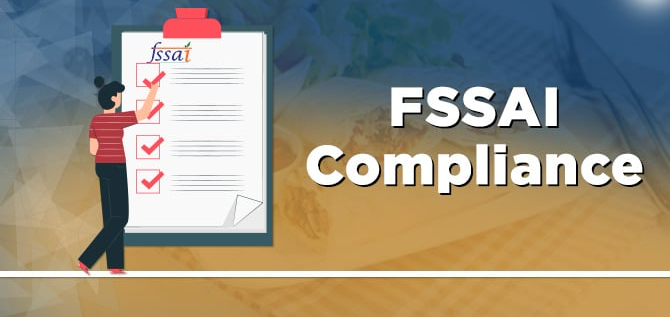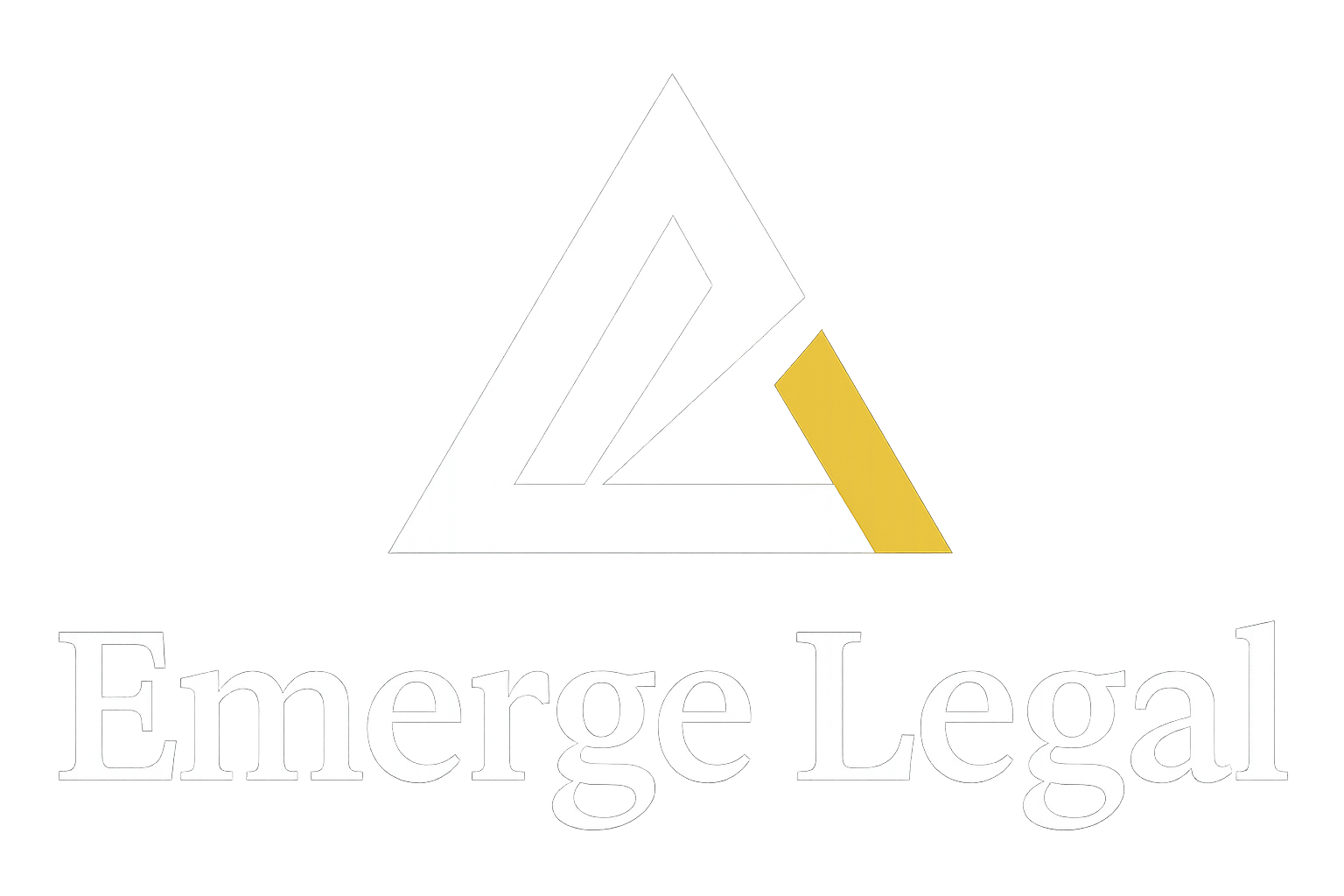
The Ultimate Guide to FSSAI Compliance for Food Businesses (2025 Edition)
In India’s diverse and dynamic food landscape, success depends on far more than taste, innovation, and price. Success ultimately comes down to trust: Trust that customers can put into your brand whether you are a niche home-based tiffin service, a sought-after cafe in the neighbourhood or a large national chain. Customers want to know that the food that is presented to them is safe, hygienic, and legally prepared, and it all begins with the larger pillar of trust that FSSAI compliance is the root of.
Food businesses of all shapes and sizes, from small startup food ventures and street vendors to multinational manufacturers must comply with the guidance from India’s Food Safety and Standards Authority of India (FSSAI). Compliance is not just about getting a license or avoiding fines. It is about:
- Ensuring the health and safety of consumers
- Protecting your brand from harm in a crowded market
- Allowing compliance to facilitate your brand’s operations and mitigate or eliminate regulatory disruption
- Providing confidence to partners, investors, and customers
It is important to understand that understanding FSSAI compliance is not a burden; it is an opportunity to show your customers that your business values the quality of your product, transparency, and honesty.
At Emerge Legal, we help food businesses unravel confusing laws, manage legal risks, and create an unbeatable compliance structure so they can focus on defining their own terms of success. Our tailored advisory is focused on ensuring that you’re not merely compliant with the laws, but exceeding them; you’re not just placing compliance in the “to-do” list, but using compliance to build a competitive edge.
This guide aims to give any food entrepreneurs and operators:
• Clarity on the requirements of FSSAI compliance
• A greater understanding of license types and applicability
• Key regulatory requirements in a step-by-step approach
• Sensible and practical tips to create a food safety culture in everyday practice
No matter what stage of your business is in, whether running a home kitchen, opening a restaurant chain or scaling a manufacturing unit, uniquely, this guide aims to keep you on the right side of the law and build consumer trust.
What is FSSAI and Why is it Important?
The Food Safety and Standards Authority of India (FSSAI) is the central authority to supervise food safety in India, as laid out in the Food Safety and Standards Act, 2006, which includes a framework to ensure food in India is safe, wholesome, and fit for human consumption.
Every food business operator (FBO) no matter how small or large, is required to obtain an FSSAI license or registration before they can start a food business.
An FSSAI license or registration is required of:
• Manufacturers
• Traders and retailers
• Restaurants and cafés
• Cloud kitchens
• Food importers/exporters
• All storage and distribution
• E-commerce food platforms
Failure to comply can result in significant fines, closing down the business and loss of customer faith.
Types of FSSAI Licenses – Which One Applies to You?
The Food Safety and Standards Authority of India (FSSAI) requires every food business operator (FBO) in India, to obtain either an FSSAI registration or license before starting food operations. Depending on your annual turnover, size of business and the type of business (e.g. manufacturing, trading, import-export, distribution across states) will help guide you in your choice of license or registration.
It is important to choose the right license option to start with so that you can establish your business model and mode of operation for success, not hassles. Consequences for not obtaining the correct license or registration can include fines or risk of penalty or administrative compliance action (license cancellation or delays in expansion of your business).
Two Compoenents of an FSSAI license or registration:
Now let’s go over the three main categories of FSSAI licenses:
1.FSSAI Basic Registration
Who needs this?
• This applies to small or petty food business owners
• Annual turnover is less than ₹12 lakh.
• Entrepreneurs involved in food business locally with limited focus or capacity for production, sourcing, and scale of reach.
Examples:
• Home-based tiffin services, home bakers
• Small food stalls, tea shops, street food vendors
• Cottage food businesses operating at food production on a limited scale
• Tiny retailers, hawkers, and itinerant vendors
Key Points
• The registration will be granted in the form of a basic certificate bearing a 14 digit FSSAI number.
• The FBO has to display this certificate at the place of business.
• Renewal is compulsory prior to expiry; not renewing may attract penalties.
2. FSSAI State License
Who requires it?
• Medium-sized food businesses with an annual turnover of ₹12 lakh to ₹20 crore are in this category.
• The license applies to businesses located in one state— regardless of the number of units within this state.
Examples:
• Mid-sized restaurant, cafe or sweet shops
• Small and medium food manufacturers
• Small food processing unit (e.g., pickle factory, bakery)
• Medium traders, wholesalers, distributors
• Storage units and warehouses in medium size
• Small dairy units (handling 501 to 50,000 litres of milk per day)
Organisational Structure:
• License shall be issued by the State Licensing Authority of the respective State where business is being operated.
• Business in case of expansion within the state can modify/upgrade the license as per growth.
• The license number should be displayed prominently at each outlet or manufacturing unit.
3. FSSAI Central License
Who need this?
• The Central License is mandatory for large food businesses falling under an annual turnover more than ₹20 crore.
• It also applies if you are an import/exporter of food products, have multiple businesses in multiple states, large scale manufacturer and processor, etc.
Some Examples:
• Large food manufacturers & processors
• Exporters & Importers of food products
• E-commerce food platform which take orders all over the states
• Large storage networks or distribution networks (includes cold chains)
• Large-scale dairies (if more than 50, 000 litres of milk processed daily)
• Nation-wide restaurant or retail chains with outlets across multiple states
Key Points:
• The Central Licence is issued by either the Central Licensing Authority or FSSAI head office.
• Importers must obtain the Central Licence to clear customs to clear their products.
• If you have more than one business in different states, you need a Central Licence for your headquarters, and a valid State License or registration must be obtained for the other units.
I would consider the following to be your best practice:
- Not only will applying for the correct type of license keep you legally compliant, it will help you avoid unnecessary regulatory fines or penalties, delays, and reapplication costs if you were required to apply for a new licence generally after an audit or as a result of business expansion.
- You should always evaluate your size and scale of operation and turnover before you apply. When in doubt seek advice from professionals (like Emerge Legal) who can help you navigate the licence path.
FSSAI Compliance Checklist for Food Businesses
Here’s a simplified roadmap to compliance that every food business should follow:
• FSSAI License / Registration
– Apply under the right category for your size and operations
– Show license number at the premises of the business and on your food packages
– Renew the license before it expires (30 days in advance if possible)
• Food Labelling Compliance
– Make obligatory declarations: ingredient list, nutrition facts, allergens, veg/non-veg logo, FSSAI license number.
– Compliance regarding size, colour of font, and position required.
– Avoid misleading claims — for example, “100% natural” claims that are without foundations.
• Hygiene and Safety Practices
– Clean kitchens, food storage and areas for handling.
– Use potable water for cooking and cleaning.
– Employee hygiene – hair nets, gloves, and medical fitness must be started.
• Record Keeping
– Records must include purchase, production, and sales for distribution
– Keep records for pest control and cleaning
– Document food recall procedures.
• Advertising and Claims
– Comply with FSSAI guide lines and Advertising Standards Council of India (ASCI) code.
– Do not make false claims about health or nutrition, or exaggerate.
How Emerge Legal assists you to maintain FSSAI compliance
The FSSAI regime can be challenging to achieve compliance. Emerge Legal offers comprehensive advisory and execution assistance to food businesses allowing compliance to be your business advantage.
• Licensing and Registration
We provide guidance in applying for the correct type of licence, assist with documentation, and handle renewals, amendments, or expansions
• Labelling & Packaging Review
We review your labels and packaging and the legal requirements including the requirements of the Legal Metrology Act
• Audit & Inspection Readiness
We prepare you for official inspections, so you comply with the legal requirements when passing your inspections
• Hygiene Standard Operating Procedures (SOP) & Training
We assist you in implementing Food Safety Management Systems (FSMS), training your team on best-practice hygiene procedures and documentation.
• Updating on Regulatory Obligations
We monitor updates on legal obligations, such as new fortification obligations, front-of-pack labelling obligations, so you can proactively address changes.
Final Considerations: Incorporating Compliance Based Principles into the DNA of your Business
• Shift your mindset from a one-off to a continuum of compliance
• Conduct compliance audits and periodic hygiene reviews
• Stay abreast of new rules – or engage others professionals such as Emerge Legal
• Train the entire team – compliance is not an individual responsibility



